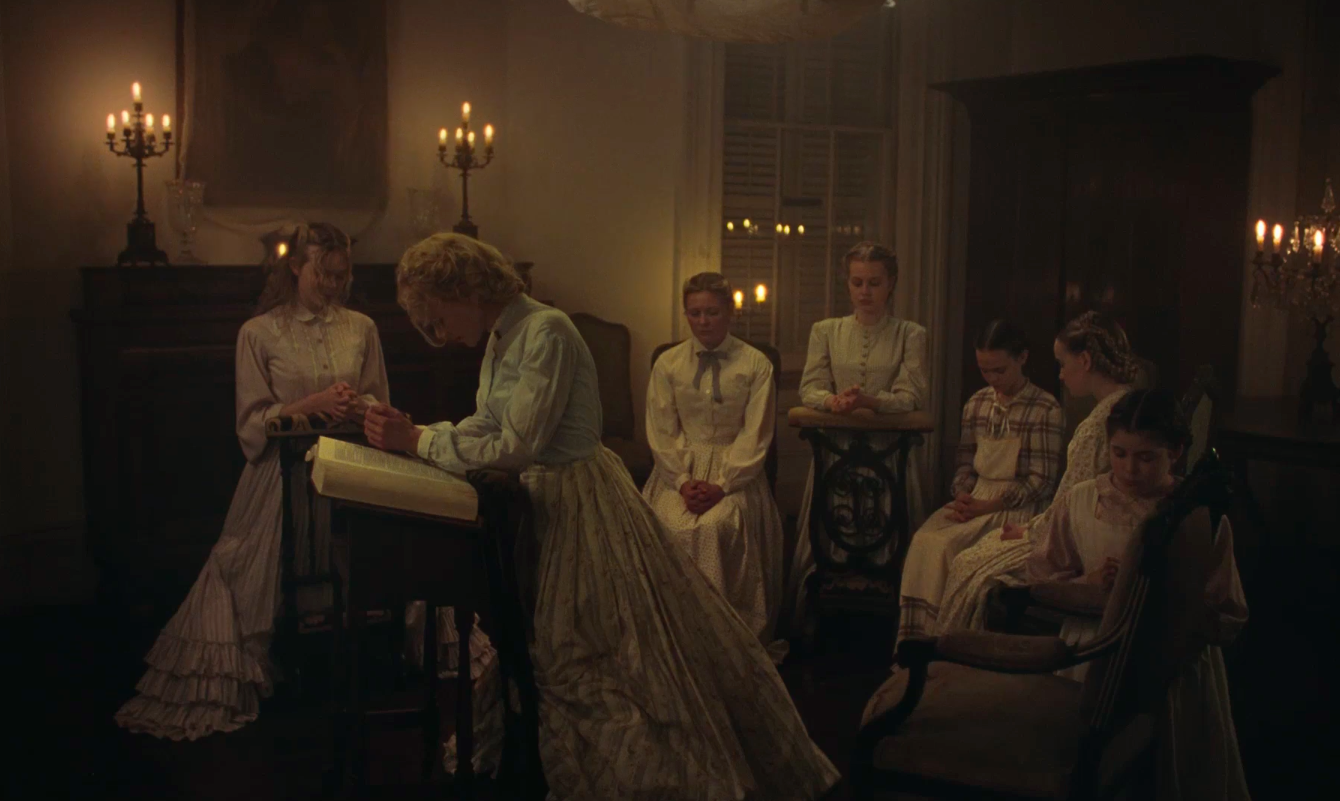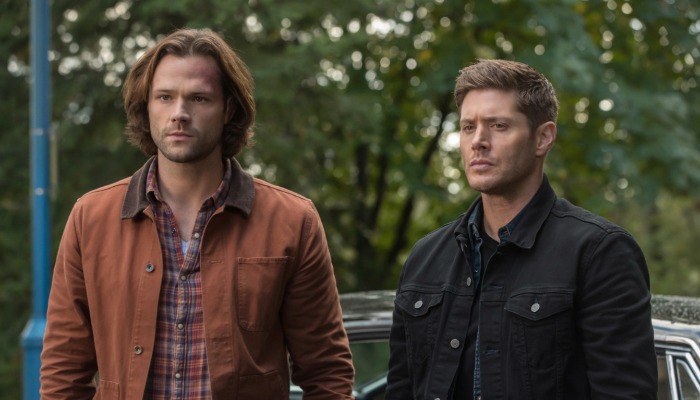If you know anything about Sofia Coppola‘s filmography, you know that she is driven to continually analyze two recurring themes: intergenerational strife and the ways in which socialization manipulates and victimizes women. This is precisely why a film like The Beguiled seems like such a perfect fit for her sensibilities, as it combines her pet interests into a story that can be ethereal and subtle in its execution, but is also grounded in explicitly plotted source material so as to reign in Coppola’s more plotless eccentricities. And for the most part, The Beguiled is exactly what you’d expect from that cocktail of elements, even if some uncomfortable implications lie in what the film chooses not to address in its purposely limited focus.
In a Virginian all-girls’ school during the height of the American Civil War, headmistress Miss Martha (Nicole Kidman), teacher Edwina (Kirsten Dunst), and their half-dozen students of various ages live in an uneasy truce with one another, carrying on their studies in the hope that there will be a world in which they may use their education once the dust settles. This is, however, until one of the girls discovers a Union soldier, Corporal McBurney (Colin Farrell), dying in the woods, and brings him back to the school for treatment. To Miss Martha’s chagrin, she acknowledges that the Christian thing to do would be to offer him charity and medical treatment, and so the women find themselves with an ostensibly unwelcome guest.
I say “ostensibly” because the film’s main conflict isn’t so much between McBurney and the women as it is among the women themselves, in how each of them subtly attempts to win McBurney’s favor since he is the only masculine presence they’ve seen in some time. It becomes increasingly clear that these are women forced together by circumstance, trapped in their schoolhouse by a war outside their control and eager for any sort of interaction apart from one another; the new player in their midst just so happens to be a relatively helpless man, so a component of sexual attraction is at play as well, whether it’s in Miss Martha’s coolly reserved glances, Edwina’s susceptibility to romanticism, or eldest teenage student Alicia’s (Elle Fanning) flirtatious rebellion.
It’s important to note, however, that McBurney isn’t a passive player in this, as he is a blatant manipulator of not just the adult women he seduces, but of the young girls who newly idolize him. There’s a constant pull between each of the characters in their competition for McBurney’s affections while pretending at innocent decorum, but their feelings are subject to a social structure in which women are not expected to be self-sufficient and the presence of a man may easily exploit that. This is a film rich in subtext and depth that is critical of how white Southern culture has victimized women, but also hopeful in how even women unwillingly trapped with one another can overcome adversity in the face of an overt masculine threat.
However, to address the elephant in the room, it is rather uncomfortable to have a film like The Beguiled, set during the Civil War, without actually addressing what that war was about. Coppola has excised a prominent black slave character that was present in both the original novel and the 1971 film adaptation, and consequently this version of The Beguiled feels entirely divorced from the conflict it exists within, painting the Union and Confederacy as opposing sides in a vague battle that the women want no part of. This may tie into the theme of female social powerlessness that Coppola addressing and ultimately subverting, but it’s hard to ignore that she does so by only addressing white perspectives. This by no means undermines the perspectives the film does portray, but it removes a layer of moral complexity from a film set in an era defined by its moral conflict.
Even so, The Beguiled exists in the upper tier of Sofia Coppola’s oeuvre. Shot with a hazy, dreamlike ethereality that lends itself well to the American South, and with a collection of bravura performances that communicate as much with glances and body language as they do with sometimes cryptically layered dialogue, this is a film that is at once tense and gorgeous to behold, and surprisingly even a little bit funny.













